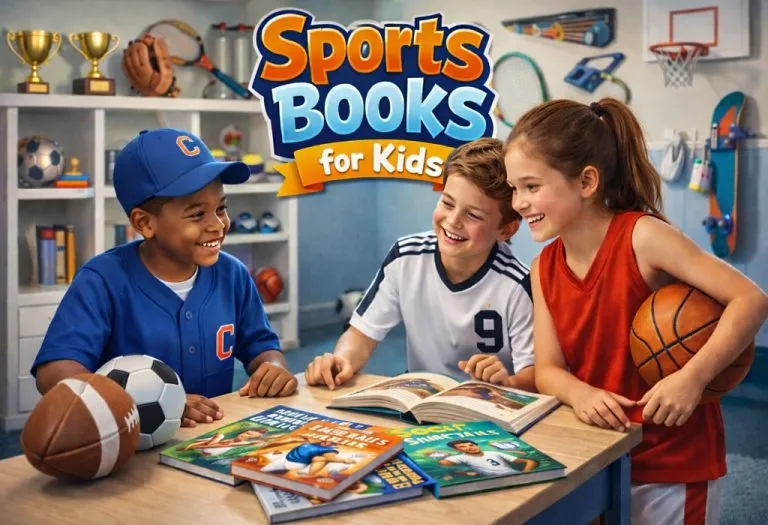Slow Learner Child: Characteristics and How to Deal?
Many people hold the misconception that if their child is a slow learner, this automatically signifies incompetence or a lack of effort on the child’s part. However, neither assumption is accurate. One of the most challenging realities for parents to come to terms with is the recognition that their child is a slow learner. Acknowledging and understanding that your child is a slow learner doesn’t equate to accepting defeat but rather opens a pathway to tailored support and guidance. When it comes to assisting a slow learning child who finds learning more challenging than his or her peers, there are numerous proactive steps parents can take to significantly ease the child’s educational journey.
Who Is a Slow Learning Child?
When it comes to slow learner meaning, a slow learning child is a child that hits his developmental markers at a much slower rate than compared to his peers. It is commonly misunderstood that these children fail at learning or are merely ‘dumb’. The truth is that every child has his own pace to learn and develop. Some children naturally learn much faster, and others are known to take their time to learn the same concepts and lessons.
What Are the Different Types of Slow Learners?
Slow learners can present a range of challenges in their learning journey, often requiring specific strategies and supports tailored to their unique needs. Here are some common types of learning challenges slow learners may face:
- Difficulty with Reading (Dyslexia): Challenges with reading, understanding, and interpreting text. Children may struggle with phonemic awareness, decoding words, reading fluency, and comprehension.
- Challenges with Math (Dyscalculia): Difficulties in understanding numbers, learning how to manipulate numbers, and learning math facts and concepts. This can include problems with counting, calculation, and math reasoning.
- Writing Difficulties (Dysgraphia): Issues with handwriting, spelling, organizing ideas, and composing written content. Children may struggle with the physical act of writing as well as with expressing their thoughts coherently on paper.
- Problems with Attention and Concentration (Attention Deficit Hyperactivity Disorder – ADHD): While not exclusively a learning disorder, ADHD can significantly impact learning. Children may have difficulty staying focused, following directions, and completing tasks, which affects their learning pace.
- Auditory and Visual Processing Disorders: These disorders affect how the brain processes auditory and visual information. Children may have difficulty understanding language or visual cues, which can impact reading, writing, and math learning.
- Language Disorders (Including Dysphasia/Aphasia): Challenges with understanding and producing spoken language, which can affect reading comprehension and written expression, as well as social interaction.
- Memory Disorders: Problems with short-term or working memory can affect a child’s ability to retain and use information learned in school, hindering their ability to keep up with peers.
- Executive Functioning Issues: Difficulties with planning, organizing, strategizing, paying attention to and remembering details, and managing time and space. This can impact a wide range of learning activities and tasks.
- Non-Verbal Learning Disabilities: Challenges with nonverbal cues, such as facial expressions and body language, which can impact social skills. Additionally, there may be difficulties with spatial relationships and fine motor skills.
What Are the Characteristics of a Slow Learning Child?
A slow learning child is one that struggles to hit basic developmental milestones that can broadly be categorised into four groups – developmental, social, personal or educational. Here are a few symptoms of slow learning child. Understanding these characteristics of slow learners will help immensely
- Developmental: The characteristics of a child with developmental learning disorders include poor memory and a delay in speech and language developmental patterns. This means your child could take longer to start speaking than others or may need more prolonged and repetitive lessons to learn most concepts.
- Social: A child who has social learning disabilities is usually known to relate to children younger to him more often and avoid interacting with peers. Such children are also prone to behaviour that is associated with children younger than their age. These children are often just labelled as introverts due to the inability to connect with their peers leading them to be quieter or more reserved.
- Personal: Children with personal learning problems seem to have less control over their emotions. They tend to fall back to anger quickly, get frustrated faster than most, express emotions like anxiety for seemingly minor issues or get depressed over setbacks. These children are most likely to have significant problems with self-esteem, confidence and are prone to acts of aggression or emotional instability.
- Educational: Children with learning or educational disabilities take longer to process and understand the information provided to them. These children may be proficient in intellectual knowledge, but it takes them longer to understand & grasp the concepts.
What Causes Slow Learning in Kids
Most parents may wonder why some children are slow learners. The truth is that there is no clear answer. Yet, there are a few underlying reasons that can be the main causes but these causes of slow learners may not be specific to your child.
- Trauma – Your child could have gone through a trauma in the past which is causing a delay in his development. It is now widely accepted that trauma of any nature – be it physical, psychological or emotional – can have the same impact on children.
- Premature Birth – One of the reasons for problems while learning is the premature birth. This can also be the reason behind your child having a slower rate of brain development.
- Medical – Another common cause for learning issues could be medical – diseases of the brain or nervous system can cause problems for children to hit learning milestones. These are often treatable, but when not treatable, they are manageable.
- Pampering – The most common cause for learning delays is the over-pampering nature of parents. At times, the learning process requires action and failure. A lot of children who are pampered are known to have the problems solved for them, which is why they never learn or adapt.
What Are the Symptoms of Slow Learning?
Recognizing the symptoms of slow learning in children is crucial for early intervention and support. Slow learners may show a variety of signs that indicate they process information at a different pace than their peers. Here are key slow learner symptoms to look out for:
1. Limited Vocabulary
Slow learners often have a smaller range of vocabulary than their peers, which can impact their communication and comprehension skills.
2. Difficulty Following Instructions
They may struggle to understand and follow multi-step instructions or frequently need reminders.
3. Poor Memory Skills
This includes challenges with short-term memory, such as difficulty remembering what they’ve just learned or been told.
4. Challenges in Reading and Writing
Slow learners might find it hard to learn to read, display reading below grade level, and have trouble with writing tasks, including forming letters and spelling.
5. Struggles With Math Concepts
They often have difficulties understanding and applying math concepts, procedures, facts, and problem-solving strategies.
6. Problems Paying Attention
A short attention span and easy distractibility can hinder their learning process.
7. Lower Social Skills
They may display less understanding of social cues and have fewer social skills compared to peers, which can affect their interactions and relationships.
8. Trouble With Problem-Solving and Critical Thinking
Slow learners can find it challenging to engage in critical thinking or solve problems that require applying knowledge in new ways.
9. Poor Coordination
This can include both fine motor skills, like handwriting, and gross motor skills, like catching a ball.
10. Slow Work Pace
They often take longer to complete tasks and assignments, needing more time to process information.
Challenges of a Slow Learning Child
A child who is diagnosed as a slow learner can face many challenges in his lifetime. He may struggle to keep up with his peers, find it difficult to stay motivated while learning, go through many bouts of depression or anxiety or struggle to communicate and build connections with people. To understand the possible challenges that your child may face as a slow learner, talk to a child learning and developmental specialist.
How to Help and Handle a Slow Learner?
There are numerous ways to help a child who is a slow learner. Here are a few methods on how to motivate slow learners:
1. Praise
Motivation is one of the most essential requirements for children who are slow learners. To help them continue learning and to keep them motivated, it is important to praise them when they get a concept or technique correctly. Even the smallest victory should be acknowleged and praised.
2. Rewards
As with any child, a slow learning child will be motivated to stay the course and learn as much as possible if there is a reward at the end of it. Try setting rewards for milestones to keep your child motivated and to help him focus on the task at hand.
3. Smaller Targets
When working with a child who is a slow learner, it is important to set small targets that are achievable and within reach. As a parent, it is your responsibilty to understand what is achievable for your child.
4. Failure Isn’t Bad
Make sure you reinforce the notion that failure isn’t a bad thing. Be realistic with teachers and other caregivers as well as with yourself that your child will fail more often than other children. When he does, do not berate him. Instead, encourage him to try again.
5. Be Open With Caregivers
Be it a teacher, your partner, parents, the babysitter or any other caregiver, be open about your child’s struggle. Let them know the situation and educate them about how to handle the situation with your child as a slow learner.
6. Be Patient
Do not compare your child to other children. This will only de-motivate you as well as your child. Stay patient when working with him and be sure that he will hit the milestones in front of him, even if it is at a much slower rate. Make sure you do not lose you patience and scream at him, as this will only demotivate him.
7. Keep Space for Aids
Whether it be post-it notes, reminders on calendars or calculators, keep room for visual and auditory aids when working with your child. These aids can be beneficial at a subconscious level. Find aids that can be used passively so your child continues to learn.
8. Be Supportive
Being vocally supportive is essential when dealing with slow learners. Encourage your child to keep at it until he succeeds. Just knowing you believe in your child will keep him motivated to keep learning and trying.
What Parents of Slow Learners Should Not Do?
Supporting a slow learner requires patience, understanding, and a positive approach from parents. It’s equally important to be aware of actions and attitudes that can hinder their progress or affect their self-esteem. Here are critical things parents of slow learners should avoid doing:
1. Overloading With Information
Avoid overwhelming your child with too much information at once. This can lead to confusion and frustration, making the learning process more difficult.
2. Expressing Frustration or Disappointment
Refrain from showing frustration or disappointment in your child’s learning pace or comparing them to siblings or peers. This can harm their self-esteem and motivation.
3. Ignoring Their Efforts
Do not overlook or undervalue the effort your child is putting into their work, even if the outcomes aren’t immediately impressive. Recognition and encouragement are key.
4. Setting Unrealistic Expectations
Avoid setting expectations that are not aligned with your child’s current abilities. Unrealistic goals can lead to feelings of failure and discourage further effort.
5. Neglecting Their Emotional Needs
Do not ignore the emotional support your child needs. Slow learners may experience anxiety, depression, or low self-esteem due to their challenges.
6. Focusing Solely on Academic Performance
Avoid concentrating exclusively on academic achievements. Encourage and celebrate their strengths, talents, and non-academic successes as well.
7. Skipping Breaks and Leisure Time
Do not minimize the importance of breaks and leisure activities in your child’s schedule. Overloading them with continuous learning can lead to burnout and decreased productivity.
8. Using Negative Labels
Refrain from using negative labels like “lazy” or “incapable.” Such labels can become internalized, affecting their self-image and motivation.
9. Forgoing Professional Help When Needed
Avoid the reluctance to seek professional help or educational resources that can support your child’s learning journey. Early intervention can make a significant difference.
10. Ignoring Their Learning Style
Do not overlook the importance of understanding and catering to your child’s preferred learning style. Tailoring your approach can enhance their learning efficiency.
FAQs
Here are some frequently asked questions about slow learning children.
1. How are slow learners different from those who have learning disability?
A learning disability is a physiological condition that prevents the child from learning in the same way as others. They can still learn at the same pace as their peers if they are taught in a different manner that works around the condition. For instance, Dyslexic children can learn as fast as any other child if they are read to instead of being made to read.
Slow learners have problems keeping up with their peers due to the inability to grasp a concept or understand what is taught to them. Slow learners have developmental issues whereas, children with learning disabilities do not.
2. Is slow learning and ADHD the same?
ADHD is an issue that is focused on attention retention. Slow learners struggle to hit learning milestones due to the inability to grasp information quickly.
3. Does slow learning mean my child has autism?
No. Autism is a condition where the child does not identify with social interactions and norms. Slow learning may be a symptom of it, but not all slow learners have autism.
4. What strategies can teachers use to help slow learners in the classroom?
Teachers can adopt several strategies to support slow learning disability effectively. Differentiating instruction to cater to diverse learning styles and speeds is crucial; this might involve breaking down tasks into smaller, manageable steps, using multi-sensory teaching methods, and providing extra time for certain tasks. Establishing a positive relationship with each student, setting realistic and achievable goals, and providing regular, constructive feedback can also significantly impact their learning journey. Moreover, integrating technology and educational software can make learning more engaging and accessible for slow learners.
Dealing with a slow learning child requires patience. It is essential to remember that a child should never be self-diagnosed as a slow learner. If you think your child may have trouble learning, contact your doctors and have him tested to be sure of his condition.
References/Resources:
1. What Causes a Child to Be a Slow Learner?; The Vision Development Team; https://www.sensoryfocus.com/what-causes-a-child-to-be-a-slow-learner/
2. Learning strategies for slow learners using the project-based learning model in primary school; ResearchGate; https://www.researchgate.net/publication/329014557_LEARNING_STRATEGIES_FOR_SLOW_LEARNERS_USING_THE_PROJECT_BASED_LEARNING_MODEL_IN_PRIMARY_SCHOOL
3. Hafidah Hafidah. H, Rukli. R; Treating Slow Learners in Learning Repeated Addition using Realistic Mathematics Education Approach; Education Resources Information Center; https://files.eric.ed.gov/fulltext/EJ1363732.pdf
4. Mushtag. R, Khan. M, Roohi. T, Ghori. U; Improving The Academic Performance Of Slow Learners Through Effective Teaching Strategies; International Journal Documentation and Research Institute; http://ijdri.com/me/wp-content/uploads/2022/01/23.pdf
5. Daga. P, Jain. E; The Psychosocial Factors of Slow Learners: A Comparative Study Between Government and Private Schools Students; The International Journal of Indian Psychology; https://ijip.in/wp-content/uploads/2022/03/18.01.079.20221001.pdf
Also Read:
How to Deal with a Stubborn Child?
How to Deal With a Highly Sensitive Child?
Tips for Parents to Handle Naughty Kids
Effective Tips to Deal With a Defiant Child
Was This Article Helpful?
Parenting is a huge responsibility, for you as a caregiver, but also for us as a parenting content platform. We understand that and take our responsibility of creating credible content seriously. FirstCry Parenting articles are written and published only after extensive research using factually sound references to deliver quality content that is accurate, validated by experts, and completely reliable. To understand how we go about creating content that is credible, read our editorial policy here.





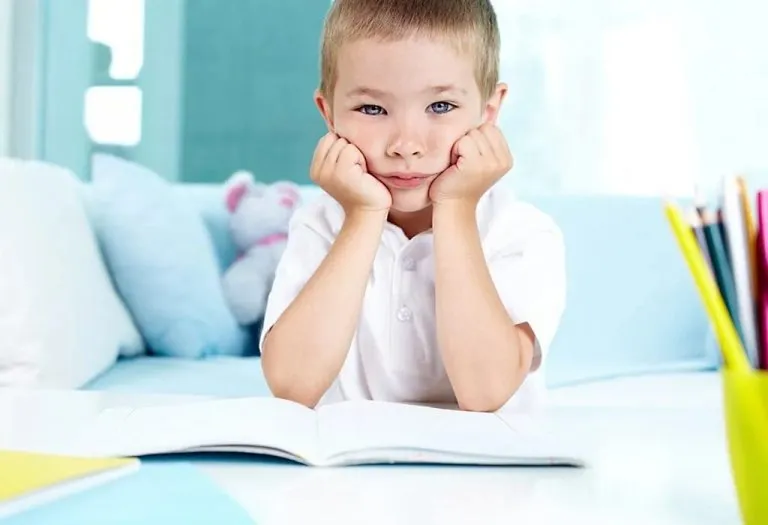

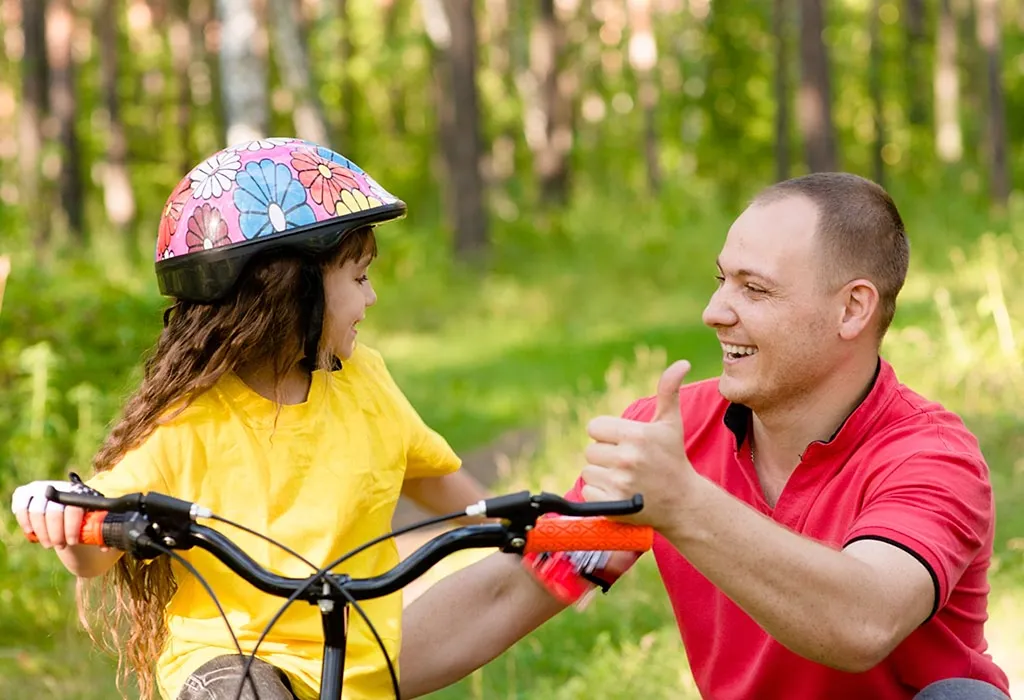

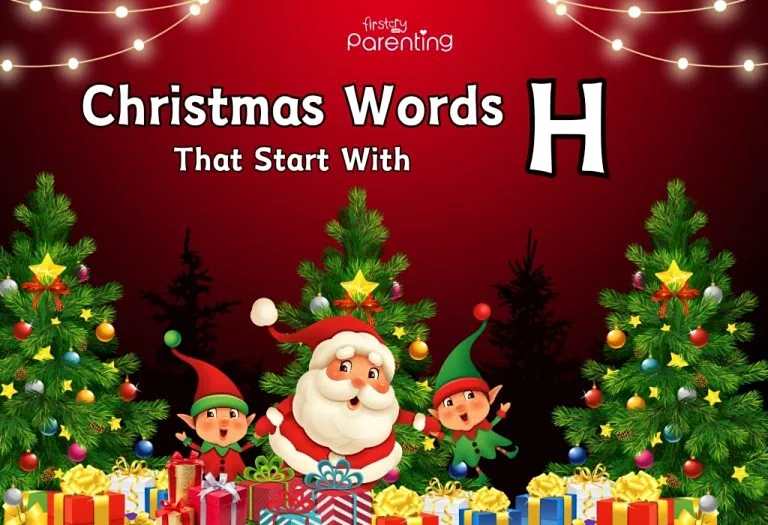
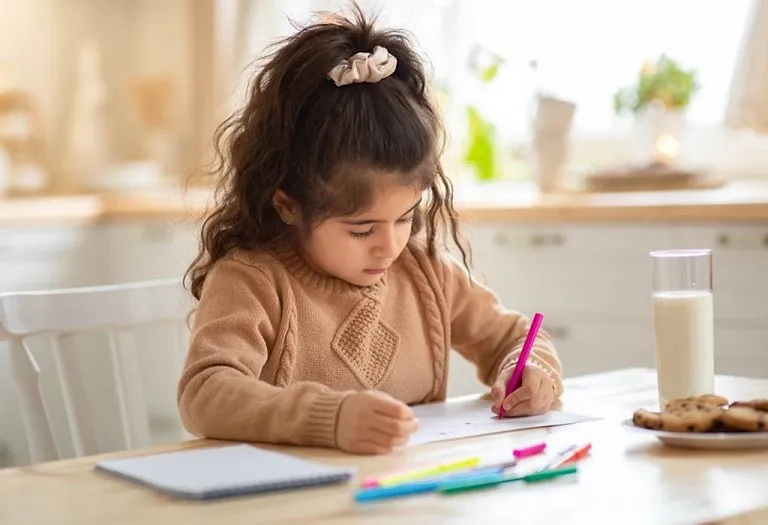


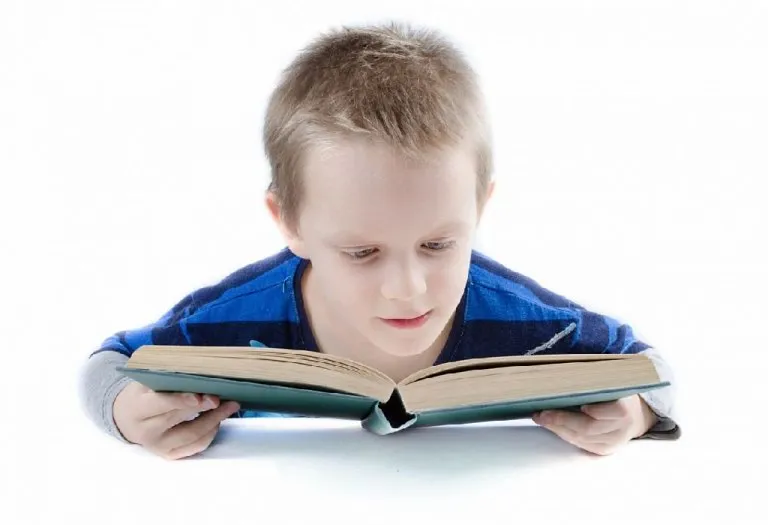


.svg)






